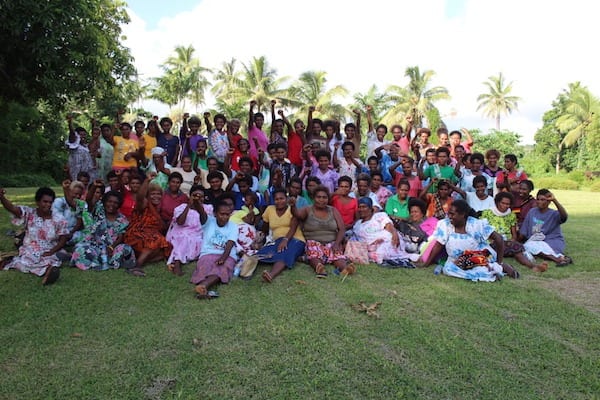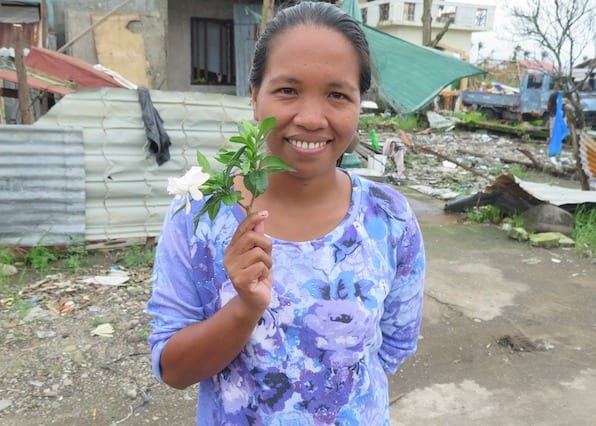On World Humanitarian Day this year (August 19), there were over 145 million people in nearly 40 countries affected by humanitarian crisis.
Women and girls are almost always the most affected when it comes to crisis: both a cause and consequence of gender inequality and injustice. The UNDP reported in 2013 that women and girls are 14 times more likely to die in a disaster than men.
Yet, a tiny portion of crisis response funding is allocated to programs that consider the unique needs and rights of women, such as protection against gender-based violence, hygiene and sanitation needs, and support to participate in leadership and decision-making processes. This has to change.
The lack of funding and focus on gender-responsive humanitarian work is especially troubling given the growing frequency and ferocity of disaster, crisis and conflict every year.
Since World Humanitarian Day last year, thousands of women have been killed, injured and displaced by devastating floods and monsoons in South Asia, landslides and ongoing conflict in the Democratic Republic of Congo (DRC) and hurricanes across the Caribbean. Not to mention the millions of women and families that continue to flee violence and conflict in Syria and Myanmar.
In 2016, the world’s governments and humanitarian agencies came together at the World Humanitarian Summit in Istanbul and committed to doing more to empower women and girls in humanitarian crisis – but how are they actually tracking?
Earlier this month a progress report on these commitments identified a significant increase in the recognition of the role that gender plays in humanitarian action by governments and the aid sector. There are also new tools, policies and guidance being developed to further promote gender equality when planning, funding and implementing humanitarian work. However, progress is slow.
The report highlights several major shortcomings around funding and accountability, which limit the effectiveness and fairness of the hard work being done to respond to crises and disasters around the world.
Women from crisis-affected communities continue to be largely shut out of decision making. Their voices, and the voices of other marginalised communities like people with disabilities and people who identify as LGBTQI, continue to go unheard on critical issues. Their unique needs are not being met and their rights are not being protected.

One of the biggest shortcomings of the humanitarian system is the failure to recognise local women’s capabilities, instead insisting on bringing in outside ‘experts’ with little experience of the daily struggle for women in countries affected by crisis.
Many women’s organisations are also fed up over their perceived ‘weak capacity’, which continues to be cited by aid organisations as the reason for not including them in decision making. As Amparo Sykioco, the Secretary of local women-led coalition PKKK in the Philippines, says, “Women should be recognised… they have the capacity to act and yet they are not perceived as first responders. Women responders make sure women’s rights are promoted and protected.”
These are powerful voices from women on the frontlines of disaster response, fed up with a system that treats them as victims rather than recognising their role as humanitarian actors and agents of change.
The Shifting the Power Coalition in the Pacific is an initiative to challenge the status quo within the humanitarian system and put power back in the hands of those leading emergency response in their own communities – particularly women. With support from DFAT’s Pacific Women Initiative, the Coalition has set an ambitious goal to ensure diverse Pacific women’s leadership in humanitarian action is recognised and facilitated. The Coalition is a group of women’s organisations across six countries in the region working together to claim their rights and take their seats at the table.
Through research, training and advocacy, local women will be leading their own agenda to empower women and girls, so that next year on World Humanitarian Day, and every year thereafter, we will see real shifts in power that result in tangible gains for women and for gender equality in the region.
Women’s leadership, voices and needs are the cornerstone of an effective, fair and just humanitarian response, one whereby crisis has the potential to shift power and resources in favour of those most impacted: women.
Photo at top of page: Imelda is from the Philippines, picture courtesy of ActionAid. Photo centre: Women participating in a Women’s Forum in Vanuatu, picture courtesy of ActionAid.


